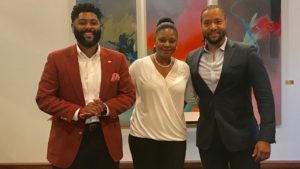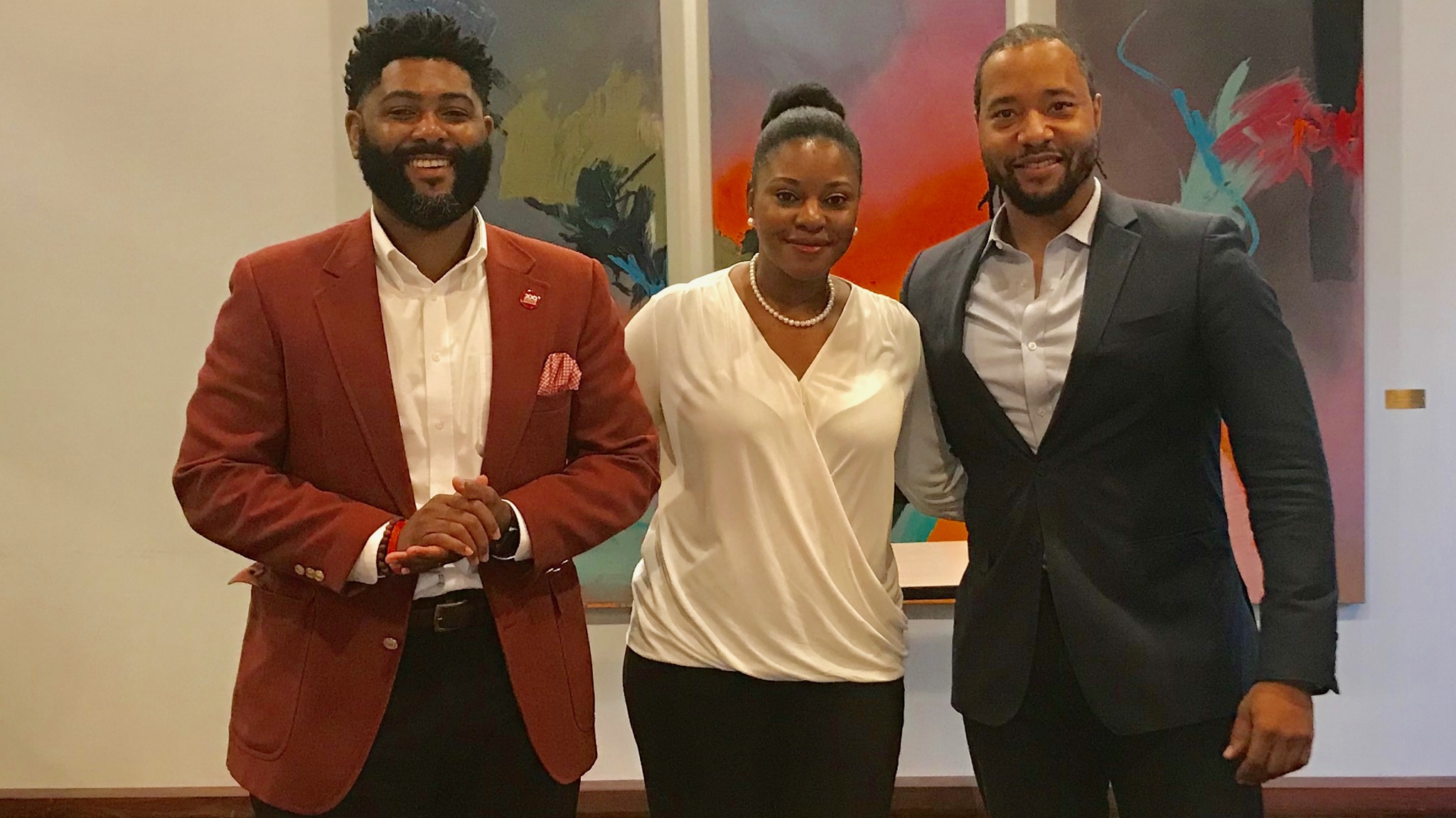By Ariel Worthy
The Birmingham Times

Martha Underwood, director of software engineering transformation at BBVA Compass, is often the only African-American woman in meetings and knows the importance of her presence.
“Most companies’ customer base is becoming more reflective of our diverse population,” she said. “So, it’s critically important to have a workforce that is diverse. I’ve been able to identify and address blindspots with customers and personnel by explaining the meaning of a phrase or joke in the middle of critical meetings. Small things like (that) lead to better relationships with customers.”
Underwood was part of a panel that included Deon Gordon, president and CEO of Tech Birmingham and Dr. Anthony Hood, an associate professor of management at UAB during a discussion about inclusion in innovation held by The Kiwanis Club of Vulcan on Tuesday morning at Alabama Power Headquarters in downtown Birmingham.
Underwood said her definition of inclusion in innovation is “embracement of strategies and ideas voiced by women and minorities at any and all levels within an institution.”
“Women must continue to their ideas, share their knowledge and use their voices because frankly, men don’t always have the best ideas,” she said.”So, if we collaborate and combine all ideas for everyone it will lead us as a collective team to discover the best approach.”
Hood, who also serves on Mayor Randall Woodfin’s Economic Development and Entrepreneurship Transition Committee board, said he feels that inclusivity in Birmingham is still an issue because of Birmingham’s history of exclusion.
“It’s important to note that we didn’t get here overnight. From its founding, Birmingham was a hotbed of innovation,” Hood said. “Unfortunately, too much of that innovation was founded in the development and implementation of increasingly creative methods to exclude, oppress, disenfranchise and restrict the liberties of others. Decades of systematic oppression and segregation left us with a legacy of inequality that is exceedingly difficult to overcome—but overcome it we must, and we will.”
Hood noted Dr. Martin Luther King Jr.’s “Letter from a Birmingham Jail” where he referred to Birmingham as “probably the most thoroughly segregated city in the United States.”
“It took time and intentionality for the city to achieve that designation,” he said. “However, I believe with even more intentionality we can help Birmingham become the most inclusive city in America. That’s our grand challenge as a community.
“At a basic level, I think people in this community still have too few meaningful interactions and close personal relationships with people unlike themselves,” he added. “That said, I think progress has been made. We just need more of it.”
Inclusion is not limited to race and gender. Ageism should also be considered.
“It’s imperative that we don’t lose the knowledge and wisdom from our more seasoned professionals,” Underwood said. “We have a lot to learn from them. They bring a measured and paced approach to organizations that can balance out the speedy decision making that may not always be warranted.”
Hood added that all of Birmingham’s citizens should be able to thrive and live the best versions of themselves.
“We have to create on-ramps and pipelines for all of our citizens to thrive…” he said. “Doing so requires cradle-to-grave strategies for inclusion. That’s the level of intentionality at which we need to operate as a community.”
As a professor, Hood said he is optimistic about the commitment to diversity and inclusion in Birmingham.
“I’m extremely excited about the Birmingham Can Code initiative which is an exciting partnership with representation from a broad cross-section of our community,” he said. “This coalition is poised to make a significant change in our community. If we can make this successful, what else can we accomplish?”
Birmingham Can Code is a new initiative led by the City of Birmingham, in conjunction with Birmingham City Schools and Lawson State Community College. Through Apple’s Everyone Can Code Curriculum, Lawson State will offer four, free week-long boot camps that will cover everything from helping students explore basic coding concepts to building fully functional apps.
Hood said he regularly visits entrepreneurial ecosystems around the country and “unfortunately, I can’t say that I’ve seen one yet that’s getting it right. So if there’s hope for Birmingham, it’s that we can lead the nation in this regard. After all, we changed the world in the 60s. No reason why we can’t do it again today,” he said.




